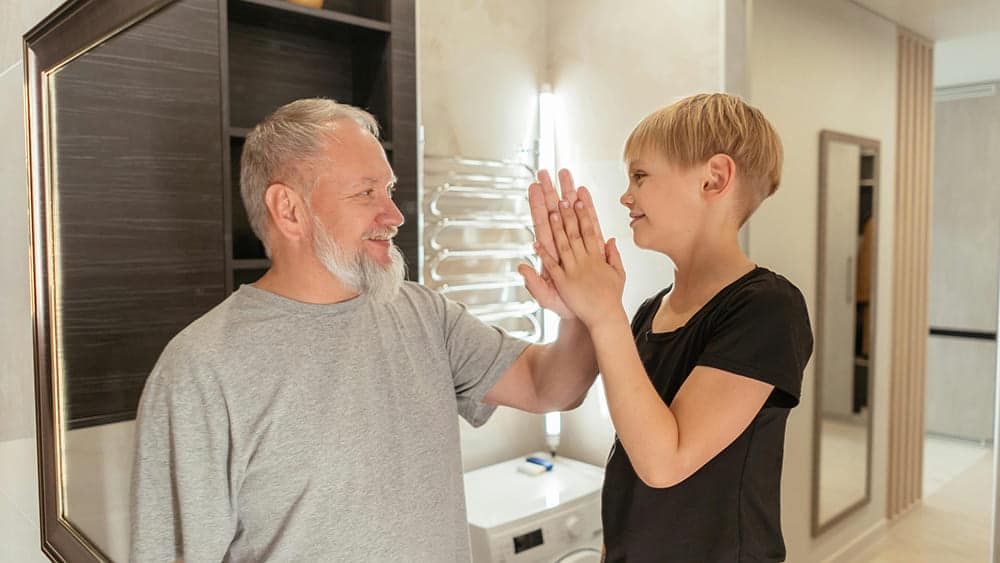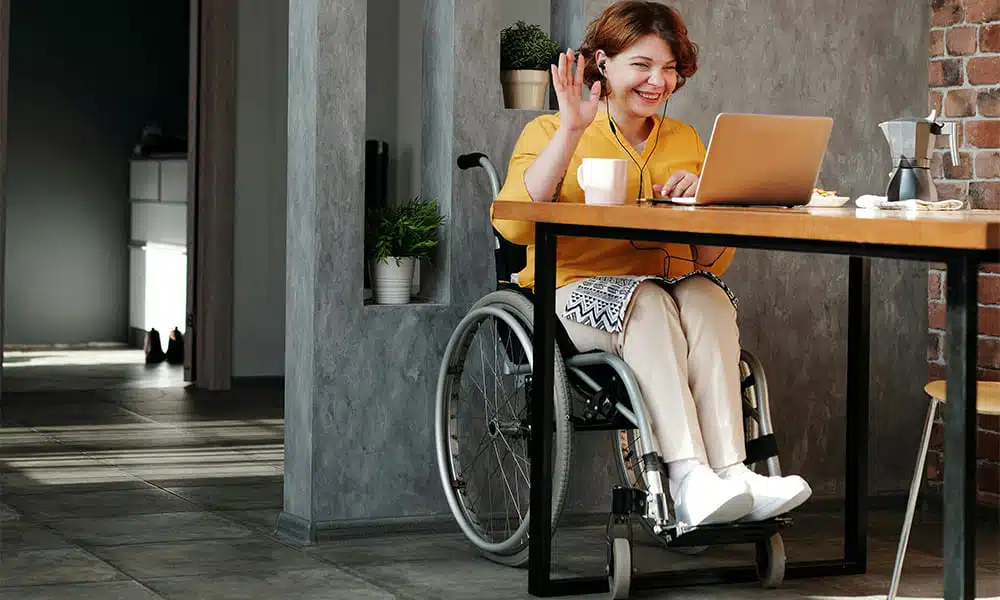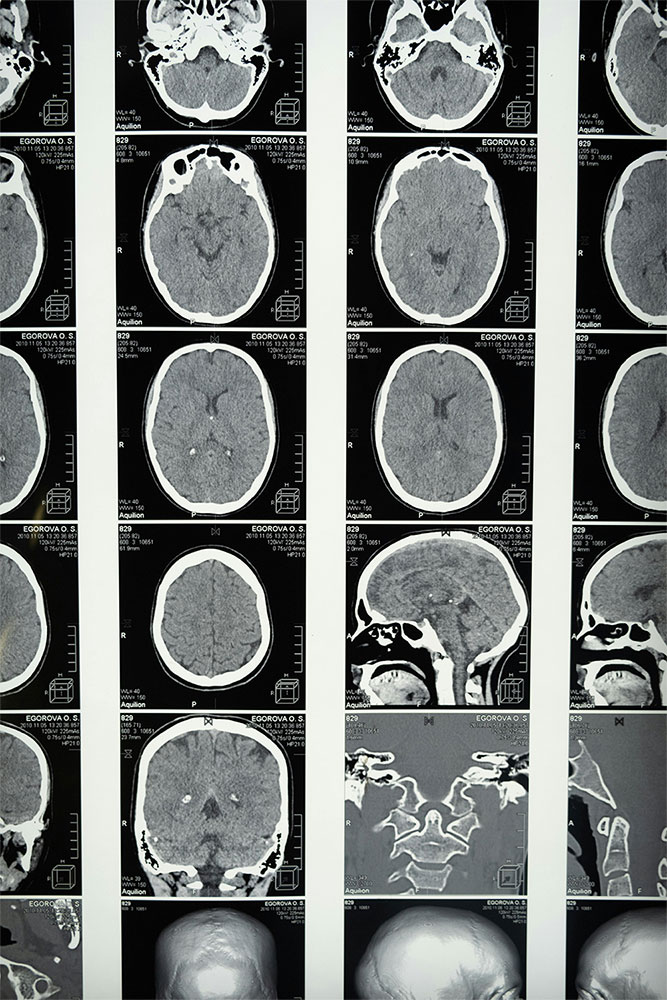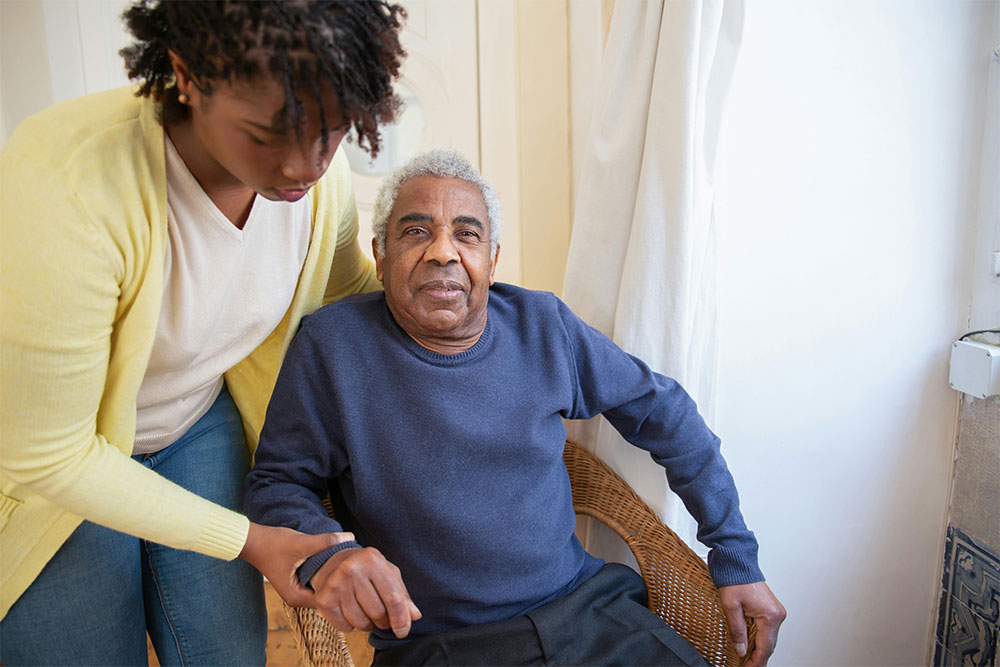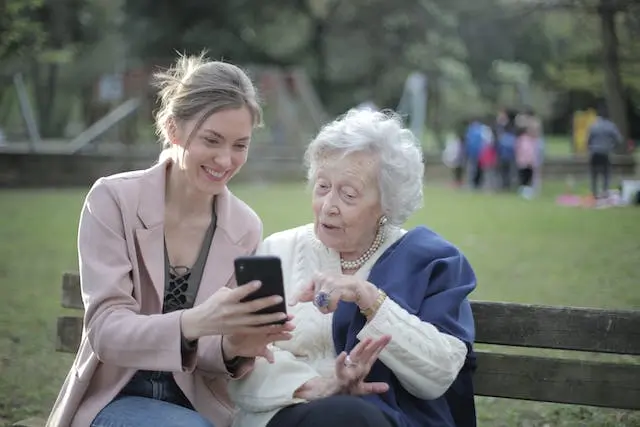
Christopher Ravn
Key Takeaways
1. Supporting Cognitive Function: to support cognitive function and everyday tasks.
2. Stay vigilant for subtle changes in cognitive function and seek medical assistance for diagnosis and personalized strategies.
3. Combine medical treatments with lifestyle changes, including exercise, nutrition, and social engagement, to manage symptoms and enhance overall well-being.
Table of Contents
1. How To Help Someone With Cognitive Impairment
2. How To Recognize Mild Cognitive Impairment?
3. Accompanying In The Initial Diagnosis
4. How To Communicate With A Partner With Cognitive Impairment
5. Improving Quality Of Life Of Patients With Mild Cognitive Impairment
6. Benefits Of Physical Activity And Exercise
7. Creative Activities For Cognitive Stimulation
8. Maintaining Social Connections
9. Techniques To Prevent Memory Loss
10. Strategies To Care For Persons With Cognitive Impairment
11. What Treatments Can Help Someone With Mild Cognitive Impairment
12. Frequently Asked Questions About How To Help Someone With Cognitive Impairment
How To Help Someone With Cognitive Impairment
According to the Centre for Disease Control (CDC), “Cognitive impairment is when a person has trouble remembering, learning new things, concentrating, or making decisions that affect their everyday life. Cognitive impairment ranges from mild to severe. With mild impairment, people may begin to notice changes in cognitive functions but still be able to do their everyday activities. Severe levels of impairment can lead to losing the ability to understand the meaning or importance of something and the ability to talk or write, resulting in the inability to live independently.”
The US government Alzheimer’s website provides a comprehensive list of strategies for assisting someone with cognitive impairment get through their daily activities. These are not necessarily strategies per se, but rather tips for everyday care.
These are, as per the website:
- Try to keep a routine, such as bathing, dressing, and eating at the same time each day.
- Help the person write down to-do lists, appointments, and events in a notebook or calendar.
- Plan activities that the person enjoys and try to do them at the same time each day.
- Consider a system or reminders for helping those who must take medications regularly.
- When dressing or bathing, allow the person to do as much as possible.
- Buy loose-fitting, comfortable, easy-to-use clothing, such as clothes with elastic waistbands, fabric fasteners, or large zipper pulls instead of shoelaces, buttons, or buckles.
- Use a sturdy shower chair to support a person who is unsteady and to prevent falls. You can buy shower chairs at drug stores and medical supply stores.
How To Recognize Mild Cognitive Impairment?
In order to recognize mild cognitive impairment (MCI), you can notice a significant change in the way they think, their memory, and even cognitive reasoning would be different from what they normally say or do. People who suffer from MCI may not be able to remember certain events or even formulate proper sentences or make decisions. They may even seem to have a short attention span, being unable to fully concentrate, but it is not that prevalent yet.
To recognize MCI, you should watch out for slight changes in one’s cognitive function and seek medical assistance should you have any concerns. By ensuring that strategic changes are made in their daily lives, it can help one deal with MCI. Thus, it is important to come up with certain strategies like visual aids such as calendars, journaling, making to-do lists, working on a healthy lifestyle, and ensuring to eat a healthy and balanced diet. It is also important to play mentally stimulating games such as puzzles, read books, and even seek support from family and friends. This would help to enhance the quality of life and mitigate any cognitive decline.
Accompanying In The Initial Diagnosis
It is important to follow your loved one during the initial diagnosis as finding out that you have cognitive impairment can be really overwhelming. Thus, it is important to understand the diagnostic process and learn how to adapt to these changes. To begin with, the person will need to undergo a thorough medical checkup which includes cognitive tests, looking at your medical history, neurological scans, to be able to identify the underlying conditions that are causing these symptoms. Therefore, it is important to analyze the diagnosis and learn to adapt to the coming changes. It is important to educate yourself about the condition and look for professional healthcare for more support.
To add to that, it is important to also understand that you will eventually face issues such as memory loss, inability to solve problems, drastic changes in behavior, and thus, seek medical advice ASAP.
How To Communicate With A Partner With Cognitive Impairment
When interacting with a partner who has mild cognitive impairment (MCI), it may be important to use a range of effective communication strategies, in addition to demonstrating empathy and patience. It is crucial to adopt a composed and encouraging demeanor, communicate in a gentle tone, and use uncomplicated vocabulary with concise and easily comprehensible words. Ensure to actively listen, as it is important to refrain from hurrying or cutting off your partner, giving them sufficient time to comprehend the information.
Empathy and patience are essential for establishing a constructive foundation between marriages. Acknowledge that your partner is grappling with mild cognitive impairment (MCI) and maintain a kind and empathetic attitude. It is crucial to maintain patience and avoid displaying symptoms of frustration when they encounter challenges in constructing clear statements.
Improving Quality Of Life Of Patients With Mild Cognitive Impairment
To improve the quality of life in patients with mild cognitive impairments (MCI) would require you to choose activities that are enjoyable and suitable. Thus, it is important to engage in activities that would stimulate and enhance cognitive function, boost mood, and provide a sense of purpose. Therefore, it is important to know the person’s interests, what kind of activity they would prefer, and their physical and mental abilities.
Thus, select activities that would provide a sense of meaning and that they are familiar with. This could range from their favorite games like Scrabble, puzzles, or even mild exercises. To add to that, seek out avenues where the person can socialize as this is important for overall wellbeing and cognitive health.
Benefits Of Physical Activity And Exercise
The benefits of physical activity and exercise for those who are having MCI are that it provides many cognitive and emotional benefits. Physical exercise has been shown to enhance one’s cognitive function such as attention span, memory, and the ability to execute a task. It enhances neuroplasticity where the brain creates and generates neural pathways for better cognitive function.
To add to that, participating in physical activities, would enhance one’s mood, reduce anxiety and depression levels, and thus promote a positive well-being. Thus, it is essential to add low-impact activities such as walking, swimming, yoga, or even tai chi into one’s regimen. However, it is very important that a healthcare consultant is consulted before embarking on an exercise regimen. This is especially important for those who have pre-existing health issues. Hence, it is imperative to slowly increase the intensity and duration of physical exercises while listening to one’s body. By doing this, you would reap the benefits of exercising while reducing the risk of potential injury.

Creative Activities For Cognitive Stimulation
It is important to participate in creative activities such as painting, sculpting, playing the piano, or violin which will stimulate one’s cognitive function. To add to that, these activities are known as a form of self-expression and thus provide a sense of self-fulfillment, mood booster, and help to enhance cognitive function. For instance, by crafting or even drawing, you will be able to magnify your fine motor skills and boost creativity. This is the same when one plays a musical instrument like the piano or enjoys listening to music. It will help to stimulate memory, improve attention, and bring about positive emotions.
There are other creative activities as well such as storytelling, poetry writing, and gardening that offer invaluable cognitive benefits and thus, provide a sense of attainment. It is important to personalize these activities to suit the needs of different individuals according to their interests, cognitive function, and abilities. As for caregivers, it is important to explore the many outlets and adapt these activities so that the patient would be able to stimulate their cognitive function and foster a sense of fulfillment and joy.
Maintaining Social Connections
In spite of the difficulties associated with MCI, it is critical to keep in regular contact with acquaintances if one wants to keep current friendships alive. Maintain constant communication with friends and family through various means such as video chats, emails, and social media. In addition to keeping your friends apprised of your partner’s condition, this will serve to strengthen and nourish them.
Do what your partner enjoys doing when you’re with friends and family to help them relax and unwind. Because being in a big group could be overwhelming for them, it’s best to stick to familiar settings when you go out with them and keep the group size small.
By checking in with your partner and thinking of ways to lend them a hand, your pals can ensure that they take turns being carers. So that others may pitch in when you need it, break down the work into smaller portions. If you or your spouse ever needs a ride to the doctor or any medical appointment, friends and family are always there to help.
If you want your friends to stay in your partner’s life, you need to pull together and lend one other a helping hand. Then you can all find ways to celebrate the good old days and have fun doing the little things together. Partners can overcome the difficulties of MCI by maintaining constant open communication and surrounding themselves with supportive friends.
We Believe Prioritizing Brain Health Enhances Your Quality Of Life
Get to know our team, our mission and how our EVY LIGHT® can provide you and your loved ones with a fuller life, letting you breathe a little easier.
Techniques To Prevent Memory Loss
In order to prevent memory loss and enhance your cognitive ability, it is important to add memory-enhancing techniques into your daily routine. These techniques could start with mindfulness and meditation, which help with staying focused and improving attention prowess. To add to that, it is important to have regular physical exercise because this would help promote brain health and enhance circulation. Moreover, there should be more mentally stimulating pursuits such as puzzles, reading, or even picking up new skills or languages. Additionally, speech therapy memory activities for adults can be beneficial. It is also important that a healthy diet is maintained that provides numerous antioxidants and omega-3 fatty acids that will boost brain health and memory retention.
Lastly, it is important to seize the unknown and learn to adapt to the changes that may come with cognitive issues. This would require you to seek support from your loved ones or join a support group so that you can glean from the experiences of others and share yours as well. Thus, by adding these memory-enhancing techniques and acknowledging the unknown, individuals can navigate through these uncertain times by being resilient.
Strategies To Care For Persons With Cognitive Impairment
When it comes to caring for a person with cognitive impairment, you would have to factor in their physical, emotional, mental, and social needs. Thus, it is important to have a robust support structure for both the patient and caregiver which involves family, friends, and any healthcare personnel that would be providing assistance.
It is also important to use practical coping mechanisms such as coming up with predictable routines, creating memory aids, and learning to be patient and empathetic can help with dealing with the daily challenges that are tied to cognitive impairment. To add to that, it is essential to tap into medical care and any form of support services that may provide added value programs and help for cognitive impairment care, including brain exercises to prevent Alzheimer’s. This may require one to contact healthcare providers, the local agencies that work towards dementia care, and support groups for both the patient with cognitive impairment and those who are providing care. By working on these strategies and using whatever resources that are out there, caregivers can thus be able to provide essential care while enhancing the quality of life.

Enhance your brain performance through the power of light.
Comfortable and easy to use 40Hz light therapy to support and improve your brain function.
View Our LightWhat Treatments Can Help Someone With Mild Cognitive Impairment
Treating mild cognitive impairment (MCI) requires a mix of medical treatments and a holistic approach that may help to manage symptoms and thus slow down cognitive decline. Firstly, when it comes to medical treatments, it is important to include prescriptions from healthcare professionals to combat certain cognitive symptoms and other underlying symptoms that might exacerbate MCI, such as Alzheimer’s or vascular dementia.
To add to that, using certain holistic care such as changing one’s lifestyle to incorporate physical exercise, a healthy and nutritious diet, proper amounts of sleep, and a good dose of mental stimulation by participating in social activities may help reduce signs of cognitive decline. Moreover, other alternative therapies such as using light therapy lamps, acupuncture, and meditation may also benefit and provide support to overall well-being and cognitive support.
Hence, it is important to incorporate a comprehensive plan that combines both medical and other holistic approaches to help those with MCI optimize their quality of life and perhaps potentially slow down the progression of cognitive decline.
Learn What Others Have Experienced with EVY Light
See how others have achieved a sharper mind by activating their gamma brainwaves in combination with maintaining a healthy lifestyle.
Frequently Asked Questions About How To Help Someone With Cognitive Impairment
How To Help Someone With Cognitive Impairment
How To Communicate With A Partner With Cognitive Impairment
When interacting with a partner who has mild cognitive impairment (MCI), it may be important to use a range of effective communication strategies, in addition to demonstrating empathy and patience. It is crucial to adopt a composed and encouraging demeanor, communicate in a gentle tone, and use uncomplicated vocabulary with concise and easily comprehensible words. Ensure to actively listen, as it is important to refrain from hurrying or cutting off your partner, giving them sufficient time to comprehend the information.










